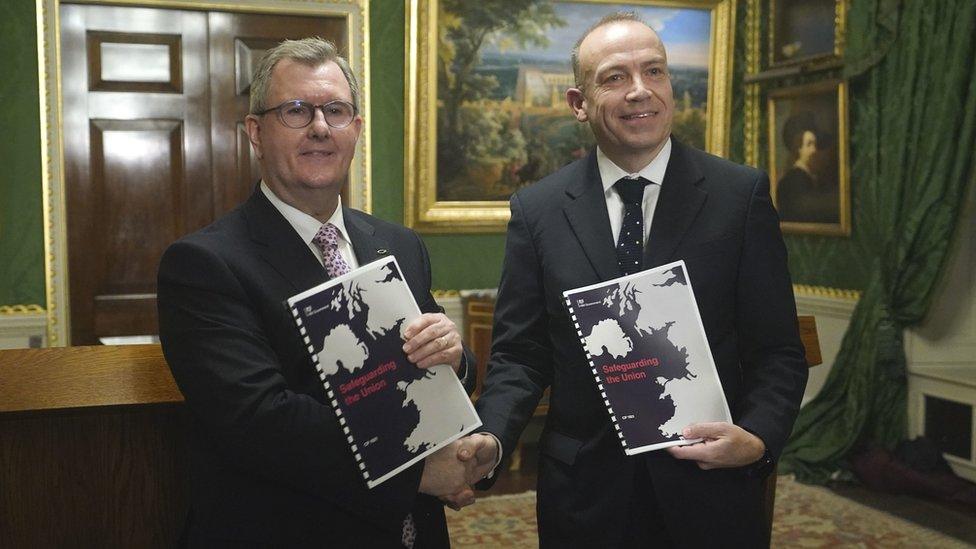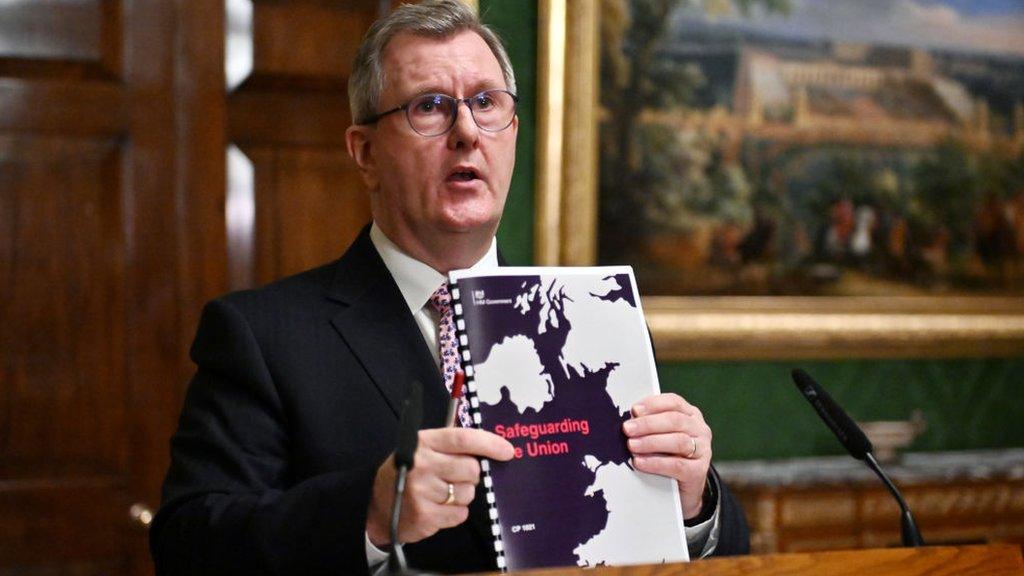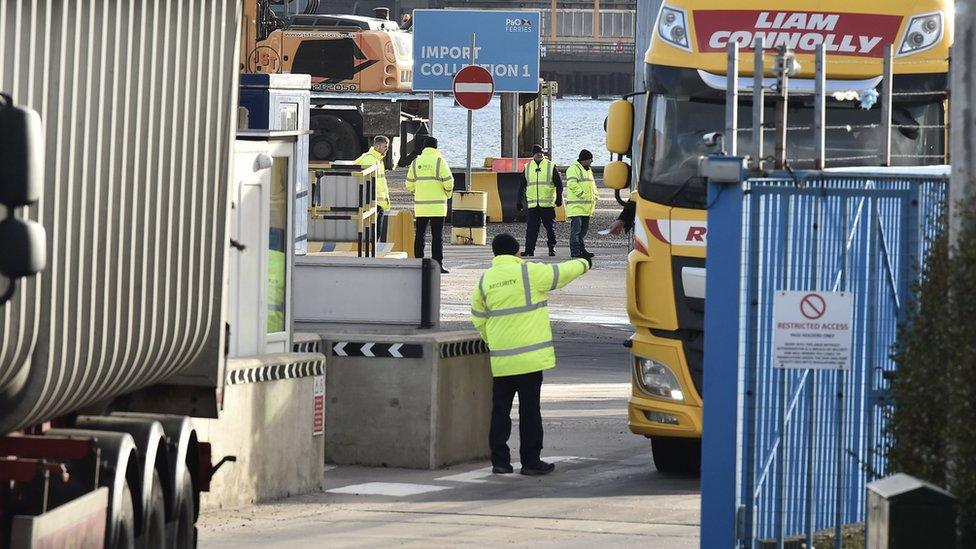DUP deal: Government command paper bids to reassure unionists
- Published
- comments

Sir Jeffrey Donaldson and Chris Heaton-Harris held a press conference on Wednesday at Hillsborough Castle
The government's command paper is fundamentally about trying to reassure unionists.
Part of that is a restatement of what the government sees as the economic benefits of the union.
"Insufficient attention has been paid to the vital importance of that economic union in the values and identities of many unionists in Northern Ireland," the paper, published on Wednesday, states.
Entitled Safeguarding the Union, external, the command paper was presented to Parliament by the Secretary of State Chris Heaton-Harris.
Aside from the new guarantees about the smooth flow of trade across the Irish Sea, the 76-page paper pulls together a variety of economic initiatives.
One of those has a long history: the attempt to get corporation tax devolved to Northern Ireland.
In 2015, a law was passed to do just that, but it has never been put into practice.
One major problem is that if you devolve a tax and then cut it, as Stormont ministers intended, you will be sending less money to the UK Treasury.
So in turn the Treasury will cut the block grant - the money it sends to Northern Ireland for public services.
Stormont and the Treasury were never able to agree how big that cut should be or it how should be implemented.
Now we have a fresh commitment to "a rapid, focused process, supported by the necessary resource from HM Treasury, on the implementation of corporation tax devolution".
The question remains - will the Treasury be prepared to cut a deal which doesn't involve a raid on the block grant?
Northern Ireland is also getting an investment zone - this is a "levelling up" policy which provide grants and tax breaks to a region.
It is understood the zone will cover all of Northern Ireland, though the tax breaks will be more narrowly focused.

The NI investment zone is described as "enhanced" which reflects the fact that it comes with grants and tax incentives of £150m compared to the £80m attached to zones in England.
Symbolic legal change
There are some smaller commitments: a review to look at how Northern Ireland could tap into UK defence spending and a £10m pot to support infrastructure developments at Northern Ireland's ports.
The paper also announces a symbolic legal change which concerns Northern Ireland's economy and which harks back to Theresa May's government.
In 2017, she agreed the Joint Report, a sort of interim Brexit deal which contains a fleeting reference to the "the all-island economy" - meaning the island of Ireland.
The UK's 2018 Withdrawal Act requires ministers to have "due regard" to that Joint Report and therefore that concept of the all-island economy.
The command paper says the all-island economy is a "new political construct" which is "divisive in nature" and has therefore got to go from UK law.
The government said it will repeal the relevant bit of the Withdrawal Act 2018 meaning "a full and complete repeal of all statutory duties relating to the all-island economy".
- Published31 January 2024

- Published31 January 2024
